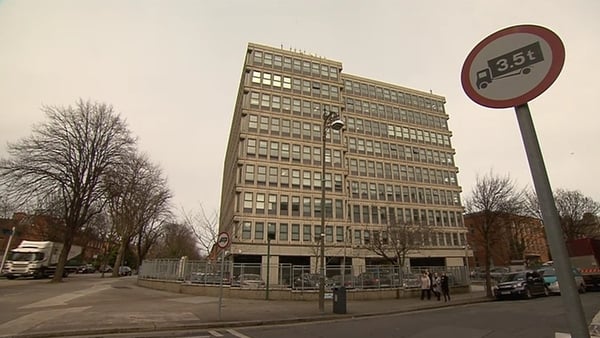Analysis: The Office is where to go with complaints about the actions or decisions of a wide range of public service providers
You may think about contacting an Ombudsman to complain if you feel that you have been unfairly treated by a service provider, or if you are dissatisfied with the quality of service. In Ireland, there are different bodies which deal with complaints about private sector organisations and public sector organisations. For example, the Financial Services and Pensions Ombudsman handles complaints about banks, credit institutions etc and the Commission for Regulation of Utilities deals with complaints about gas, electric and other public utilities providers.
The Office of the Ombudsman was established in 1980 specifically to investigate complaints about providers of public services, such as government departments, local authorities, the HSE and third-level education bodies. The Office provides a free, impartial, and independent service to examine complaints submitted by members of the public concerning the actions or decisions of public service providers, that the individual feels are unfair or have an adverse impact on their circumstances.
We need your consent to load this rte-player contentWe use rte-player to manage extra content that can set cookies on your device and collect data about your activity. Please review their details and accept them to load the content.Manage Preferences
From RTÉ Radio 1's Morning Ireland, Ger Deering, Ombudsman for Public Services, on the record number of complaints about public services received in 2022
What type of complaints are investigated?
The Ombudsman has the power to investigate complaints about:
- the public service provider's failure to deal with the complaint in the first instance,
- if the provider fails to communicate effectively with the complainant
- if there is a failure to provide an explanation for the reason for its decision.
The Ombudsman will also assess whether the public service provider handles complaints fairly and can help the parties to informally resolve the matter in dispute.
Does the office deal with all public service providers?
The Ombudsman investigates complaints about almost all providers of public services, including services provided by:
- Government departments and offices such as the Revenue Commissioners and Department of Social Protection;
- local authorities;
- the Health Service Executive (HSE);
- charity and voluntary bodies which deliver health and social care services on behalf of the HSE;
- publicly funded third level education bodies and Student Universal Support Ireland (SUSI).
We need your consent to load this YouTube contentWe use YouTube to manage extra content that can set cookies on your device and collect data about your activity. Please review their details and accept them to load the content.Manage Preferences
What does the Office of the Ombudsman do?
The Office can help with a wide range of problems that may arise including delays processing passport applications; decisions about the Housing Assistance Payment (HAP) scheme; difficulties applying for driving licences or driving tests; complaints about the Residential Tenancies Board; decisions regarding eligibility for emergency medical cards and penalties applied to farming scheme payments.
In more recent years, the Ombudsman’s investigatory remit has been extended to include complaints about public and private nursing homes, such as charges in private nursing homes, the care and treatment provided in either public and private nursing homes, and concerns about security of tenure in the nursing home.
The Ombudsman’s remit over Direct Provision services includes complaints about the standard of accommodation provided, food services, decisions to move people to a different location. However, the Office does not make or review decisions about asylum and immigration applications.
We need your consent to load this rte-player contentWe use rte-player to manage extra content that can set cookies on your device and collect data about your activity. Please review their details and accept them to load the content.Manage Preferences
From RTÉ Radio 1's Morning Ireland, Ombudsman describes supports for people with disabilities as 'shameful'
Since 2005, the Ombudsman’s remit now includes examination of complaints by persons with disabilities regarding accessibility of public buildings, access to services, access to services provided by public bodies, access to information and access to heritage sites.
Does the Ombudsman deal with complaints about Eir?
While the Ombudsman will deal with complaints about a vast number of service providers, the Ombudsman’s investigatory jurisdiction does not include examining complaints about any gas, electricity or other utility providers, banks or financial institutions, insurance companies, or telecommunications providers (such as Eir or Vodafone), An Post or An Garda Siochana. If necessary, the Ombudsman can direct you to the correct regulatory body with oversight for these organisations.
How do I submit a complaint for investigation?
Before you get in touch with the Ombudsman, you need to contact the service provider first to give them an opportunity to respond and address your complaint. If you are unhappy with their initial response, you should avail of any local appeals systems provided by the service provider.
It's a free, impartial, and independent service to examine complaints about the actions or decisions of public service providers
If you have exhausted all of these options and remain dissatisfied with the service provider’s response, the best way to contact the Ombudsman is via the office's website, but you can also submit your complaint by telephone or post. You can include any relevant information with your complaint, for example, details of any correspondence with the service provider.
In circumstances where you may be unable to complain, you can ask someone else to do so on your behalf. You are required to provide written permission for the other person to submit your complaint.
You can contact the Ombudsman for advice and assistance about your complaint before you submit it for consideration. Staff from the Ombudsman's office also host regional complaints clinics in the Citizens Information Centres in Limerick, Galway and, beginning in 2024, Cork.
Is there a deadline for submission of complaints?
There's a 12-month time limit from the date of the service provider’s initial action or decision that you are dissatisfied with for you to submit your complaint to the Ombudsman. An extension to the 12-month time limit is permissible in exceptional circumstances where there is a justifiable reason for the delay.
How long does it take to review my complaint?
The aim is for a quick resolution of complaints with the vast majority of being processed within three months. If there are more complex issues involved, it may take up to six months.
If your complaint is upheld by the Ombudsman, the Ombudsman can recommend that remedial action be taken by the public service provider to address the issues raised to avoid similar problems arising again for someone else. They may also recommend a financial reimbursement in certain cases,
We need your consent to load this rte-player contentWe use rte-player to manage extra content that can set cookies on your device and collect data about your activity. Please review their details and accept them to load the content.Manage Preferences
From RTÉ Radio 1's Morning Ireland, the Ombudsman discusses his report into the experiences of younger people living in nursing homes
For example, because of the complaints raised about the delays processing passports, the Office of the Ombudsman identified that dissatisfied customers could only submit their complaints by post, and subsequently liaised with the responsible government department, the Department of Foreign Affairs and the Passport Office, to develop an online complaints service. Other remedies have included the provision of a more detailed explanation clarifying the rationale for the decision made by the public service provider.
Does the Ombudsman only investigate complaints from the general public?
One significant function of the Office of the Ombudsman is the power to initiate its own independent investigations. In 2015, the Ombudsman undertook such an investigation into complaints systems in public hospitals. In 2023, the Ombudsman published the outcome of his investigation into the administration by the HSE of schemes which fund necessary medical treatment in the EU/EEA or UK.
A notable consequence of the latter investigation is a commitment by the HSE to implement the Ombudsman’s recommendations to improve administration of the services provided, and furthermore to review over 200 cases regarding reimbursement of healthcare treatment costs abroad.
The views expressed here are those of the author and do not represent or reflect the views of RTÉ






